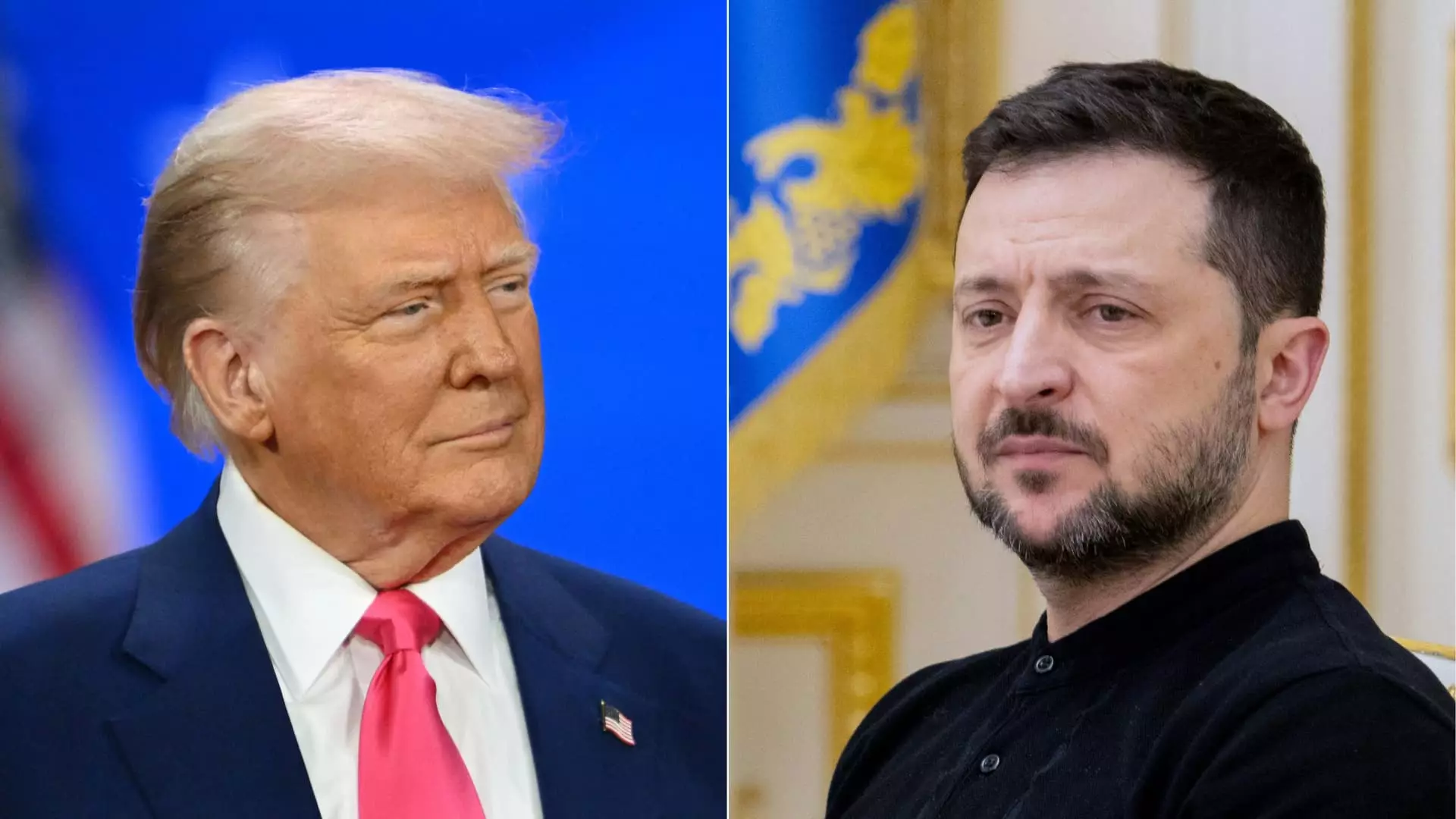In contemporary geopolitics, it is all too tempting for leaders and commentators to assign blame for complex conflicts to one party exclusively. The recent statements by Donald Trump blaming Ukraine’s President Zelenskyy for prolonging the war with Russia are a stark example of this misguided perspective. Framing the conflict as a simple matter of Kyiv’s unwillingness to capitulate ignores the underlying geopolitical realities, historical grievances, and security concerns that have shaped the current crisis. To portray Ukraine as the principal obstacle to peace is not only simplistic but dangerously dismissive of the broader architecture of regional and global security that is at stake.
By shifting all responsibility onto Ukraine, Trump effectively absolves Russia of its aggressive actions—namely the annexation of Crimea, support for separatists, and invasion—whose origins go back nearly a decade. This narrative negates the fact that Ukraine’s resistance is rooted in a desire for sovereignty and security, aspirations that are entirely legitimate within the framework of international law. Such a portrayal also risks emboldening those who believe that Russia’s territorial ambitions should be accepted or tolerated, which undermines the international community’s efforts to uphold rules-based order and sovereignty.
The Danger of Misplaced Simplification
Simplifying the Ukraine conflict to a binary choice—either Ukraine folds or Russia wins—ignores the complexity of the situation. It reduces human suffering, political legitimacy, and diplomatic nuance into a caricatured debate. When leaders like Trump suggest Ukraine could “end the war almost immediately” if it wanted to, they overlook the strategic positions Ukraine holds and the geopolitical stakes involved. For Ukraine, resisting Russian advances is not about stubbornness; it is about defending an idea of nationhood and resisting imperial ambitions that threaten not just their borders but the stability of the entire European continent.
Furthermore, rather than recognizing Russia’s actions as the primary driver of conflict, proponents of this narrative shift blame onto Ukraine’s alliances or security posture. This overlooks the fact that NATO’s expansion, while contentious, was a response to security concerns among neighboring states and was never intended as an act of aggression. Continually framing the issue as Ukraine’s fault for seeking closer ties with the West diminishes the agency of Kyiv and ignores the legitimate security anxieties of NATO member states.
The Real Stakes: Security, Sovereignty, and Global Stability
The proposal floated by Russia—demanding Ukraine’s capitulation in eastern regions in exchange for a ceasefire—exposes the dangerous game of concessions that could set a disastrous precedent. To accept such demands would be to acknowledge that conquest and territorial annexation are acceptable tools in modern geopolitics. It would also undermine Ukraine’s sovereignty and weaken the very principles the international community strives to uphold.
The core issue is not simply whether Ukraine should enter a peace deal or continue fighting; it is about how to establish a sustainable, just peace that respects Ukraine’s territorial integrity and recognizes Russia’s violation of international law. Sympathizing with Ukraine’s right to defend itself does not mean dismissing the complexities of diplomatic negotiations, but it does imply rejecting narratives that justify or normalize aggressive imperialism.
The Illusion of Peace Through Capitulation
Proposals that heavily favor Russian demands—such as ceding strategic territories—are fundamentally flawed. They suggest that peace can be achieved at any cost, ignoring the longer-term repercussions of allowing imperial ambitions to go unchecked. True peace requires recognition of sovereignty, adherence to international norms, and a willingness from all parties to compromise without sacrificing fundamental principles.
Leadership in the West must be grounded in a realistic assessment of these realities. While diplomacy and negotiations are crucial, they must not come at the expense of Ukraine’s territorial integrity or the security of Europe. To blame Kyiv for the war’s persistence is to ignore the broader geopolitical dynamics and the necessity of a firm, principled stance that affirms the rights of sovereign nations against unlawful aggression.
Rather than fueling narratives that diminish Ukraine’s agency or endorse concessions that threaten regional stability, the focus should be on fostering diplomatic solutions that uphold international law. This requires resisting the allure of quick fixes and recognizing that peace is only sustainable when it is rooted in justice, sovereignty, and collective security—not in misguided attempts to placate aggressors with empty promises.

